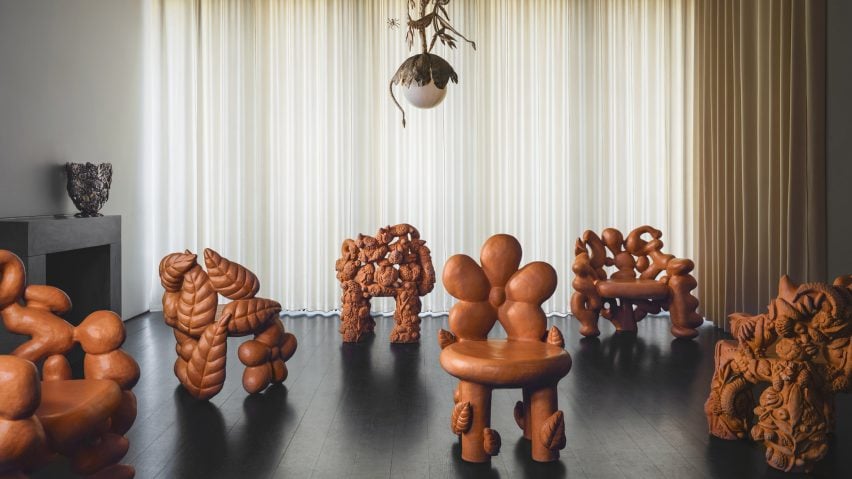
Chris Wolston pushes limits of terracotta with Flower Power chairs
New York gallery The Future Perfect is exhibiting a collection of chunky terracotta seats by American designer Chris Wolston as part of NYCxDesign, finished using pre-Columbian craft techniques and moulds of real flowers.
The Flower Power collection encompasses 13 different chairs and benches, with exaggerated botanical forms designed to showcase the craftsmanship and natural qualities associated with the material.
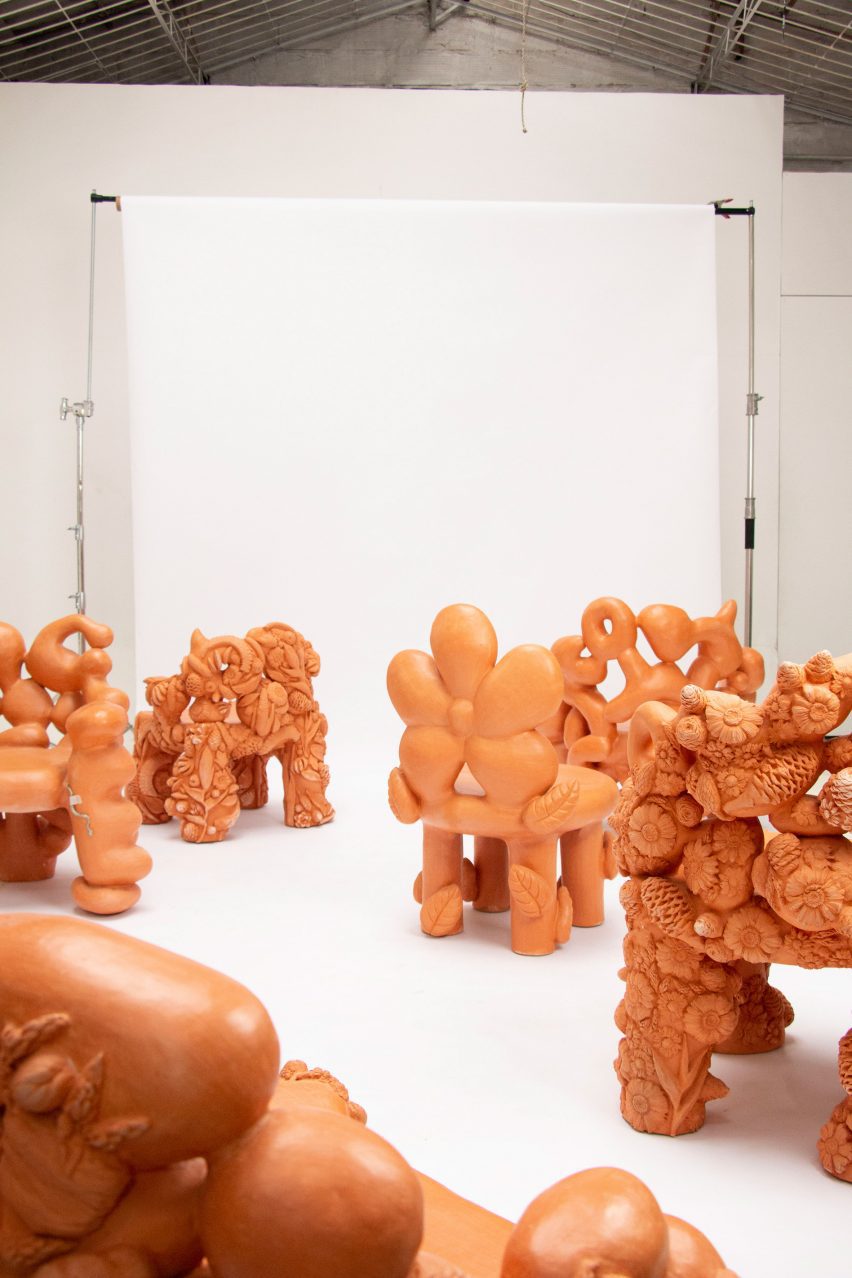
"Terracotta is perceived as lesser in terms of material value and just general perceptions when it comes to ceramics," Wolston told Dezeen. "So creating these abstracted and complex forms was a way of creating a space for reconsideration."
"I'm deeply fascinated by this material that actually comes straight from the earth," he added. "So I wanted to really push it in a way that highlighted the craftsmanship."
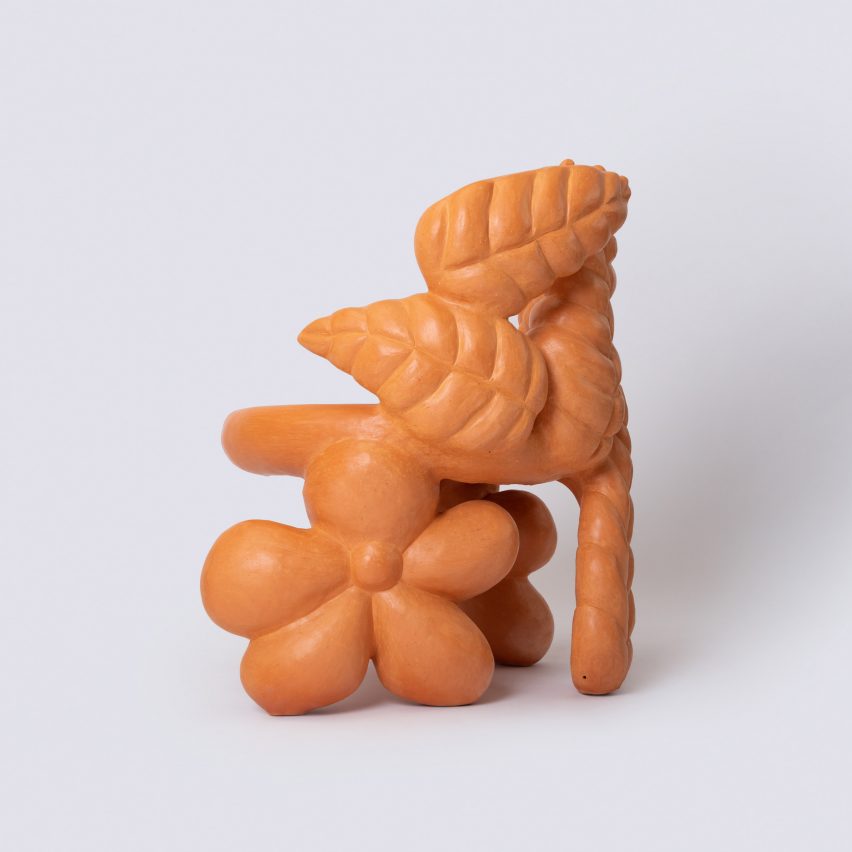
The pieces were manufactured in Wolston's ceramics studio in Medellín, where he is based, using clay sourced from a mountain outside the Colombian capital of Bogotá.
Unlike manufactured clay with its set and precise ingredient ratios, Wolston said this natural earth clay proved more unpredictable.
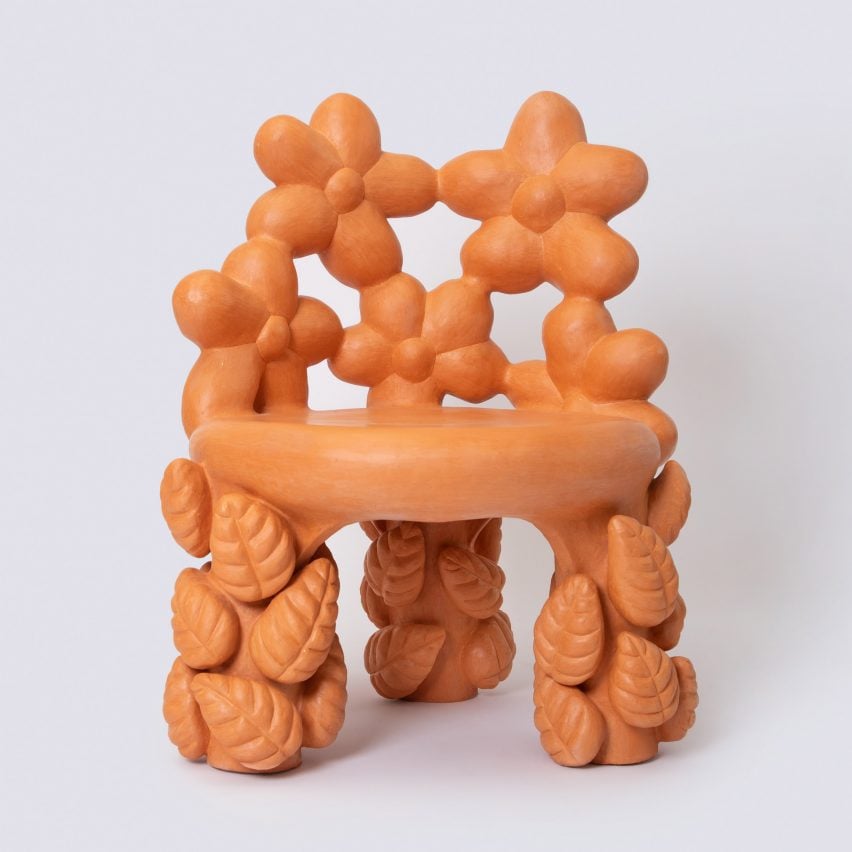
"There has been a lot of trial and error in figuring out how to fire it and how to construct it so we don't get cracks," he explained.
The base structure of the chairs is hollow save for the seat, which is supported by internal reinforcements that Wolston compared to the arches of an aqueduct.

On top of this base structure, the designer layered different floral motifs. Sometimes these take the form of small decorations, made using press moulds of real flowers and other plants from Wolston's garden.
Other times, they are huge cartoonish flowers and vines that are hand-built to serve as structural elements, such as legs and arms. The backrest of the Flower Chair, for example, takes the form of a huge daisy in a nod to its use as a pacifist symbol in the 1960s.
"Flower Power is a reference back to the 60s and the use of flowers and other inanimate objects as a way of social protest," Wolston said.
"[Beat poet] Allen Ginsberg thought that through presenting flowers and objects from the dollar store in a totally different context, it would actually cause people to stop and rethink what they were looking at."
Ultimately, the designer hopes the chairs will have a similar effect by presenting terracotta in a new light.
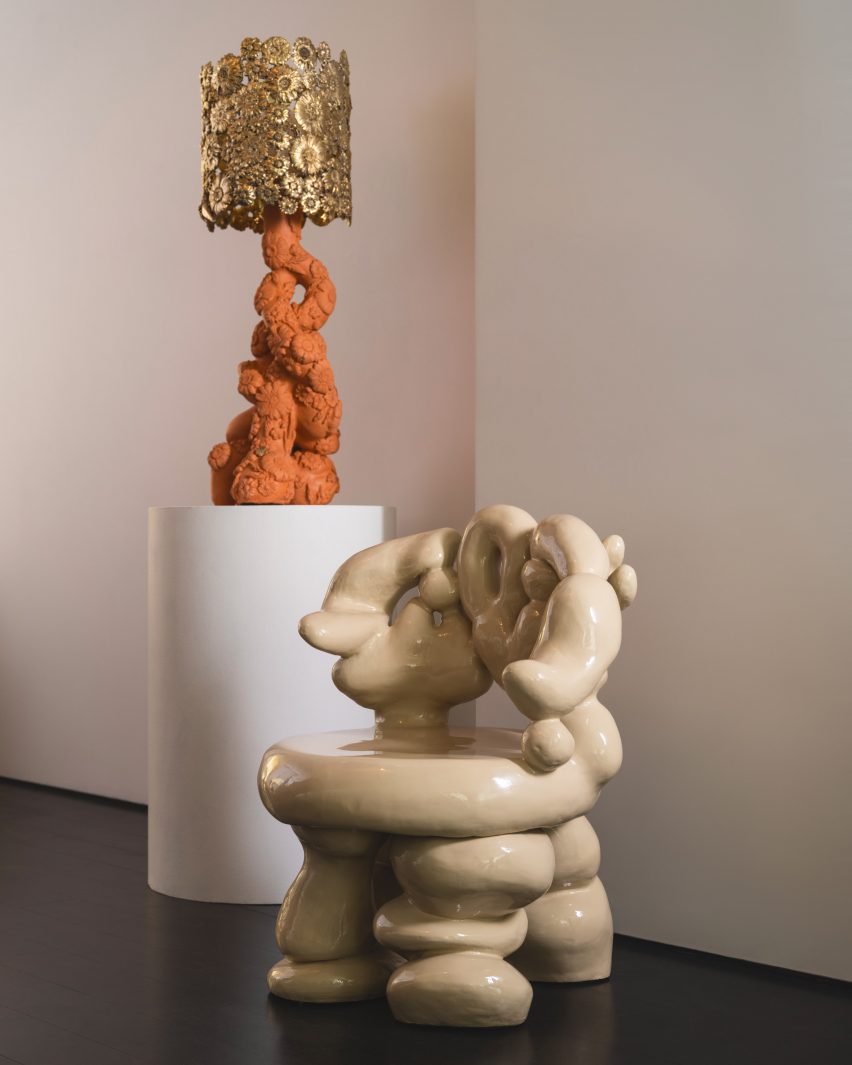
When they are not adorned with press-moulded flowers, the seats have a shiny surface that's created through a pre-Colombian finishing technique that involves burnishing the ceramic as it dries using a polishing stone.
"The burnishing technique was actually used in ceramic cultures before glaze was around, as a way to seal the molecules on the surface of water vessels and make them less penetrable," Wolston said. "But also visually it's a very interesting finish."
"A lot of pre-Colombian ceramics from the archive in Medellín at the University of Antioquia have that surface," he added. "And there's a lot that can be learned about techniques of working with the material from those forms."
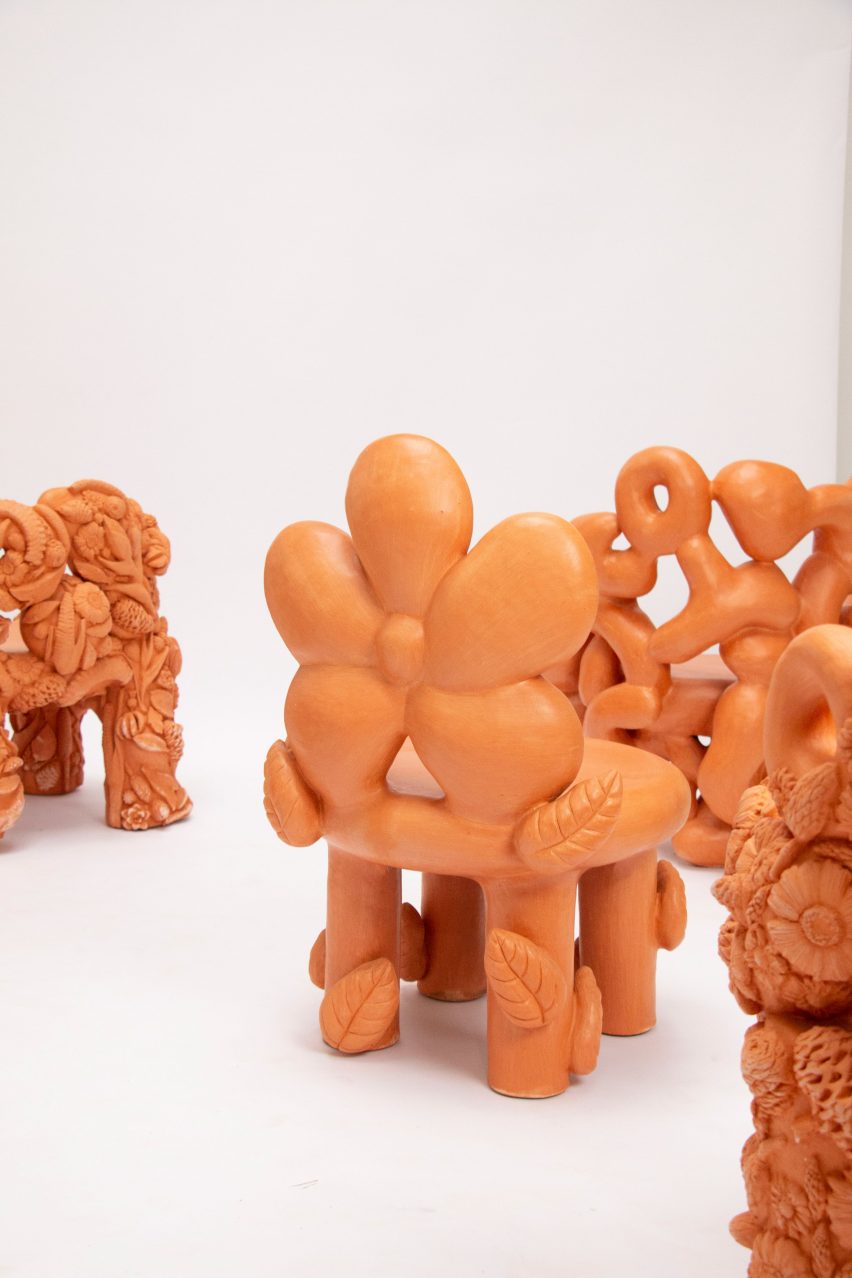
Several of the pieces in the collection took up to three months to dry before being put through a highly controlled firing process that involved slowly and gradually cranking up the temperature.
"The firing process is really complex and it took us a long time to get it right," he said. "If it goes too slow or too fast, the piece could crack and explode."
Also included in the collection, which is on show in The Future Perfect's townhouse in the West Village, is a duo of lamps that follow the same format, with the addition of cast bronze shades.
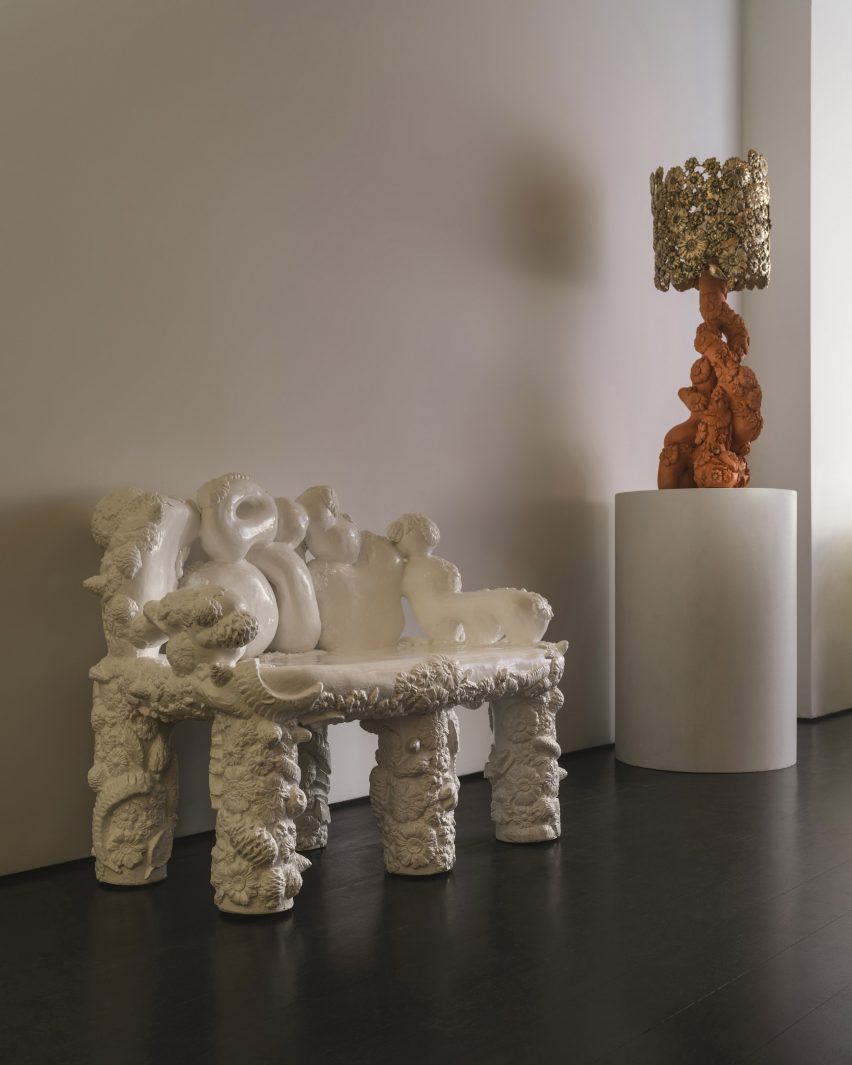
Wolston frequently collaborates with the collectible design gallery and has previously contributed to the opening exhibition at the townhouse and the Casa Perfect showroom in Beverly Hills.
He also contributed a metal coffee table depicting an abstracted orgy to a model apartment The Future Perfect styled in Tribeca.
The photography is by Joseph Kramm, David Sierra and Radha Leon.
Flower Power is on show at The Future Perfect from 18 May to 30 June 2023. For more information about events, exhibitions and talks taking place as part of NYCxDesign, visit Dezeen's 2023 guide to the festival.